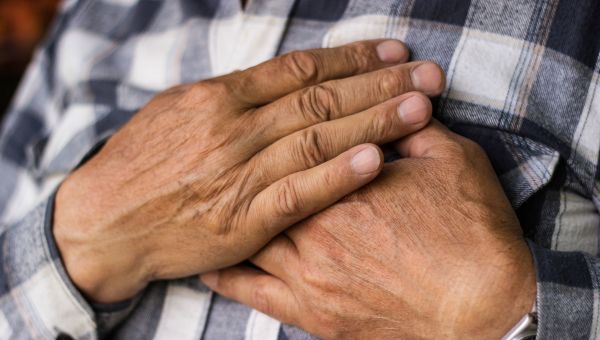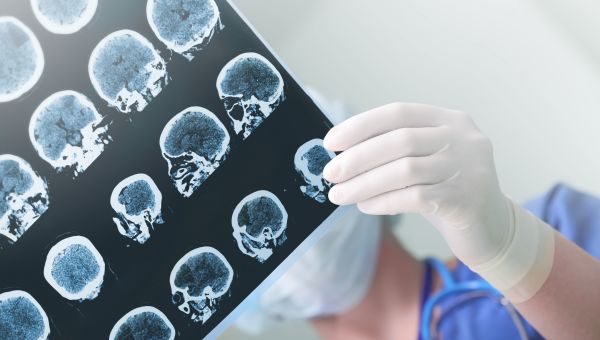4 health risks linked to depression
Certain health issues, like heart disease and diabetes, may increase the risk for depression. Find out why.
Updated on March 6, 2024

Occasional feelings of sadness, indifference and irritability are normal, especially during major life changes like the loss of a loved one or a cross-country move. But when these feelings begin interfering with how you interact with others and function every day, it’s possible you’re experiencing depression.
When that happens, it can affect nearly every aspect of your… Show More
Occasional feelings of sadness, indifference and irritability are normal, especially during major life changes like the loss of a loved one or a cross-country move. But when these feelings begin interfering with how you interact with others and function every day, it’s possible you’re experiencing depression.
When that happens, it can affect nearly every aspect of your life, according to counselor and mental health expert Whitney Toothman, LPC, of Parkridge Health System in Chattanooga, Tennessee. In terms of physical changes, people with depression often have trouble sleeping or they may turn to alcohol or drugs for relief. And some people overeat for comfort.
“These behaviors can have long-term effects on your body,” she says. “You experience a weakened immune system, and that can set you up for a number of chronic health problems.”
The connection goes both ways, too, she adds. For example, those who start with chronic issues like diabetes or Alzheimer’s disease may develop depression as a result of those conditions—and that can exacerbate the original problem. Here are four health conditions closely tied to depression.
Show Less
Diabetes
Obesity and depression can go hand in hand, Toothman notes. Depression can cause people to eat fatty, sugary foods that increase the release of “feel-good” brain chemicals like dopamine. That can provide temporary relief of some symptoms, but may lead to consistent weight gain. Obesity, in turn, is… Show More
Obesity and depression can go hand in hand, Toothman notes. Depression can cause people to eat fatty, sugary foods that increase the release of “feel-good” brain chemicals like dopamine. That can provide temporary relief of some symptoms, but may lead to consistent weight gain. Obesity, in turn, is linked to increased rates of depression thanks to biological mechanisms, social isolation, feelings of guilt or social stigma.
As your weight increases, it raises your risk of developing Type 2 diabetes. More than 90 percent of those with the condition are overweight or obese. The disease is linked to a number of serious health problems, especially kidney disease, cardiovascular disease, stroke and blindness.
“If you’re overweight, you can be at higher risk for experiencing depression, and if your weight becomes a factor for developing diabetes, that can deepen the depression,” says Toothman. Managing a chronic disease like diabetes, along with living with potential complications, can have a significant effect on your quality of life, she believes.
For example, diabetes may come with nerve damage, skin conditions, hearing problems, and other issues that can feel disheartening. That can prompt feelings of depression, Toothman believes, and make existing depression feel more pronounced.
“It becomes a cycle that can make your health worse in many ways,” she says.
Show Less
Heart Disease
For those with depression, insomnia is a frequent complaint, especially when anxiety is present, says Toothman. Disturbed sleep has been linked to poor heart health, including high blood pressure, heart failure and atherosclerosis.
Research suggests that the connection may be due to increased… Show More
For those with depression, insomnia is a frequent complaint, especially when anxiety is present, says Toothman. Disturbed sleep has been linked to poor heart health, including high blood pressure, heart failure and atherosclerosis.
Research suggests that the connection may be due to increased inflammation. Restorative sleep helps reduce inflammation levels and allows the body to do necessary repair work—such as regulating the heart’s electrical activity and maintaining blood vessel elasticity. When that work is constantly interrupted, it can put a strain on your cardiovascular system.
Sleep is not the only connection between heart health and depression. If you’re depressed, you’re more likely to use unhealthy behaviors like smoking or eating poorly as coping mechanisms, which can increase your risk of heart issues. Also, depression itself is associated with inflammation, decreased heart variability and more platelet “stickiness,” which have all been associated with cardiovascular disease.
Heart problems can also lead to depression, studies have noted. This can cause people to have lower motivation when it comes to taking their medications on schedule, eating healthy and quitting smoking—behaviors that all lead to better heart health.
Show Less
Alzheimer’s Disease
Depression has been associated with changes in how your brain functions, and researchers have noted that because of this, a history of depression may be associated with Alzheimer’s disease and dementia risk as you get older.
One small study suggested depression may negatively affect your… Show More
Depression has been associated with changes in how your brain functions, and researchers have noted that because of this, a history of depression may be associated with Alzheimer’s disease and dementia risk as you get older.
One small study suggested depression may negatively affect your hippocampus, the area of the brain most associated with memory. This may be why, in some cases, depression may be an early symptom of dementia.
Like other conditions, this can be a two-way relationship—those with memory or cognition problems can also develop depression as a result of those challenges.
The symptoms can be similar for both conditions, and may include sleep issues, difficulty concentrating, poor memory and disinterest in social activities.
Show Less
Chronic pain
Depression can also worsen existing pain, and that pain can also make symptoms of depression more severe.
Researchers have noted that those with depression are more likely to experience symptoms like recurring back pain or frequent headaches. In fact, this kind of pain is sometimes seen as an early… Show More
Depression can also worsen existing pain, and that pain can also make symptoms of depression more severe.
Researchers have noted that those with depression are more likely to experience symptoms like recurring back pain or frequent headaches. In fact, this kind of pain is sometimes seen as an early sign that you may have depression, or even the main manifestation of it.
Treating each issue can be difficult on its own but when they’re occur at the same time, it can be even more challenging.
Chronic pain can be another reason for poor sleep, and sleep deprivation itself is linked to higher levels of depression. Those with insomnia are 10 times as likely to have clinical depression as those without sleep issues.
Show Less
Starting the conversation
To address the short-term effects and long-term risks associated with depression, start by talking with a healthcare provider (HCP), suggests Toothman.
“Many times, they can provide great referrals and resources, and they’re happy to have you be honest and open about what you’re experiencing,” she… Show More
To address the short-term effects and long-term risks associated with depression, start by talking with a healthcare provider (HCP), suggests Toothman.
“Many times, they can provide great referrals and resources, and they’re happy to have you be honest and open about what you’re experiencing,” she says.
HCPs, like doctors and trained counselors, are very aware of the links between health problems and depression. Knowing your emotional and mental health history can help your doctor formulate a better treatment plan.
“Depression is very treatable,” Toothman notes. “There are many strategies, including exercise, medication and therapy, that can provide relief. When you’re addressing the issue, that can significantly lower the health risks associated with depression.”
Show LessMore On


video

article

slideshow


video


video
